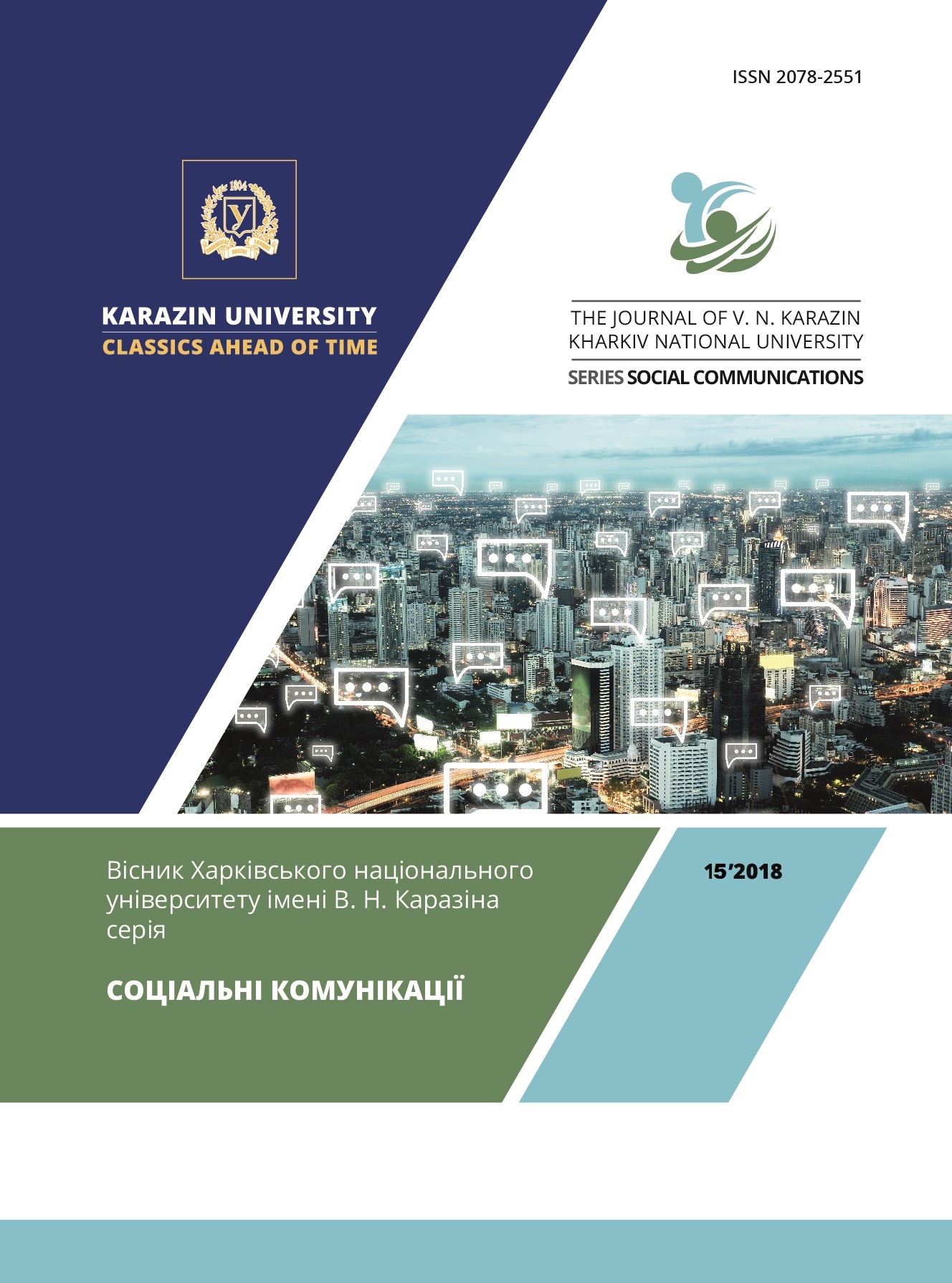The axiological potential of modern media text
Abstract
The axiological essence in mass media was disclosed in the article. Also the axiological conception was examined, according to which mass media appears as an information-axiological mechanism, which forms, selects, replicates and transforms values in the society. Transmitting the view system of the world, which structures social interests and values, mass media forms media axiosphere, that is a variational system of value dominants determined by a number of socio-cultural factors. Constructing the axiological media reality by transmitting value dominants, mass media suggests the audience a definite value model, which can play both destructive and constructive role.
To a large extent, the influence of media on a person’s system of value depends both on external changes of a social nature and on inner, individual processes occurring with the subjects of media communication. Different reactions to the same communication aggravator are mainly due to life experience, educational level, individual psychological characteristics of information consumers, etc. The effectiveness and power of the information impact depends on the degree of trust to mass media information accepted in society, the stability of the recipient’s own position in relation to certain social phenomena, events. However, playing the role of the main source of knowledge and an active public «figure», modern mass media acquire the status of social value. In a situation of a crisis in the value system, the media become an intermediary in the search for value dominants. The media reality created by them sets axiological models of behavior with the help which the recipients relate their moral principles, value orientations, and even produce stereotypes of thinking under the influence of translated samples.




